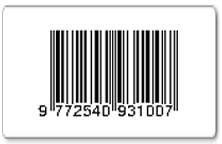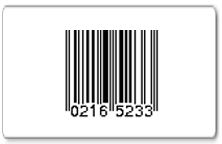What are the challenges of the Indonesian halāl industry in the 5.0 era?
Abstract
Indonesia has very good potential, such as the majority of the Moslim population and the growing halāl industry in Indonesia, with the such good potential it should be able to become the center of the world's halāl industry. However, there are several problems that are a challenge for the government, policymakers, and the public to be able to synergize in the development of the halāl industry in Indonesia. This article describes the challenges of the Indonesian halāl industry in the era of society 5.0. The update of this paper is a discussion of the 5.0 era of society and the development of the halāl industry, which is currently in Indonesia entering the 5.0 century. This article uses descriptive qualitative with library research methods. The results of this paper are that there are two challenges that become evaluation material for the government and policymakers, namely internal challenges consisting of the lack of human resources for the halāl industry, the low number of MSMEs that are halāl certified, and halāl product certification. The external challenges in the form of rampant global competitors and competition for the advancement of technology digitalization
Halāl industry, Indonesian challenges, society 5.0
Keywords
Full Text:
PDFReferences
Abdussamad, Z. (2022). Buku Metode Penelitian Kualitatif.
Adinugraha, H. H., Oktafiyani, M., & Mubtadi, N. A. (2021). HALAL LIFESTYLE: Theory and Practice in Indonesia. Zahir Publishing.
Ahmad, I., Kom, S., Kom, M., Djajasinga, I. N. D., Astuti, S. D., Annisa Sanny, S. E., Cahyadi, N., S ST, M. M., Rullyana Puspitaningrum Mamengko, S. P., & Reza, V. (2022). DIGITAL MARKETING (Concept, Strategy, and Implementation). Cendikia Mulia Mandiri.
Aniqoh, N. A. F. A., & Hanastiana, M. R. (2020). Halal food industry: challenges and opportunities in Europe. Journal of Digital Marketing and Halal Industry, 2(1), 43–54.
Arwani, A. (2020). Sharia accounting on Indonesian Financial Accounting Standard on zakat and waqf take on industrial revolution 4.0 and society era 5.0. Journal of Islamic Accounting and Finance Research–Vol, 2(2), 1–30.
Astuti, D. (2021). Indonesia as the best halal tourism destination and its impacts to Muslim’s travelers visit. European Journal of Theology and Philosophy, 1(3), 43–50.
Aulia, R., Apsari, D., Haswati, S. M. B., Rusyda, H. F. S., Syafikarani, A., Lionardi, A., Rahardjo, S., Farida, A., Putra, W. T. G., & Barlian, Y. A. (2022). Embracing the Future: Creative Industries for Environment and Advanced Society 5.0 in a Post-Pandemic Era: Proceedings of the 8th Bandung Creative Movement International Conference on Creative Industries (8th BCM 2021), Bandung, Indonesia, 9 September 202. Taylor & Francis.
Azam, M. S. E., & Abdullah, M. A. (2020). Global halal industry: realities and opportunities. IJIBE (International Journal of Islamic Business Ethics), 5(1), 47–59. https://doi.org/http://dx.doi.org/10.30659/ijibe.5.1.47-59
Azis, L. A., & Ahmat, N. H. C. (2022). Impact of COVID-19 Pandemic on Hotel Service Quality and Customer Satisfaction.
Aziz, A. (2021). Scholarly Journal of Psychology and Behavioral Sciences Promising Business Opportunities in the Industrial Age 4.0 and the Society Era 5.0 in the New-Normal Period of the Covid-19 Pandemic. Scholary Journal of Psychology and Behavioral Sciences, 5(4). https://doi.org/10.32474/SJPBS.2021.05.000216
Aziz, M. (2017). Perspektif Maqashid Al-Syariah dalam penyelenggaraan jaminan produk halal di Indonesia pasca berlakunya Undang-Undang Nomor 33 tahun 2014 tentang jaminan produk halal. Al Hikmah: Jurnal Studi Keislaman, 7(2), 78–94.
Bintarti, S., Wicaksana, P. S. I., & Sari, R. (2022). The Effect Of Product Quality, Product Variation And Promotion Towards The Purchase Decision Of Viva Cosmetics. Jurnal Ekonomi, 11(01), 448–453.
Boğan, E. (2020). Halal tourism: The practices of halal hotels in Alanya, Turkey. Journal of Tourism and Gastronomy Studies, 8(1), 29–42.
BPS. (2020). Jumlah UMKM bersertifikat halal. https://www.bps.go.id/pressrelease/2020/08/05/1737/-ekonomi-indonesia-triwulan-ii-2020-turun-5-32-persen.html
Deguchi, A., & Kamimura, O. (2016). Society 5.0. H-UTokyo Lab. https://doi.org/https://doi.org/10.1007/978-981-15-2989-4
Deliabilda, S. A., Putra, H. M. M., & Riwayadi, E. (2022). Analisis Lingkungan Makro dan Implikasinya terhadap Financial Technology (FinTech) di Indonesia. Jurnal SEKURITAS (Saham, Ekonomi, Keuangan Dan Investasi), 5(2), 196–210.
Dinar, S. (2018). State of the Global Islamic Economy. State of the Global Islamic Economy.
Dinar Standard. (2019). State of the global islamic economy report: Driving the islamic economy revolution 4.0. Dubai International Financial Centre, 1–174. https://cdn.salaamgateway.com/special-coverage/sgie19-20/full-report.pdf
Dinar Standard. (2021). State of the Global Islamic Economy Report Thriving in Uncertainty. DinarStandard, 1–178. https://cdn.salaamgateway.com/special-coverage/sgie19-20/full-report.pdf
Dinar Standard. (2022). State of the Global Islamic Economy Report 2021/2022. State of the Global Islamic Economy Report 2020/21, 4–202. https://haladinar.io/hdn/doc/report2018.pdf
Elasrag, H. (2016). Halal industry: Key challenges and opportunities. Hussein Elasrag.
Erliani, L., & Sobiroh, C. (2022). Studi Komparasi Fatwa MUI No: Kep-018/MUI/I/1989 Dan Undang-Undang Nomor 33 Tahun 2014 Tentang Ketentuan Jaminan Produk Halal. Falah: Jurnal Hukum Dan Ekonomi Syariah, 2(2), 15–28.
Fathoni, M. A. (2020). Potret Industri Halal Indonesia: Peluang dan Tantangan. Jurnal Ilmiah Ekonomi Islam, 6(3), 428. https://doi.org/10.29040/jiei.v6i3.1146
Fukuda, K. (2020). Science, technology and innovation ecosystem transformation toward society 5.0. International Journal of Production Economics, 220, 107460.
Gunawan, I. (2022). Metode Penelitian Kualitatif: teori dan praktik. Bumi Aksara.
Hasan, Z. (2021). Making Indonesia as Integrated Halal Zone and World Halal Sector Hub Through the Implementation of Halal Supply Chain. Journal of Islamic Economic and Business Research, 1(1), 1–14.
Holroyd, C. (2022). Technological innovation and building a ‘super smart’society: Japan’s vision of society 5.0. Journal of Asian Public Policy, 15(1), 18–31.
Ismanto, K. (2022). The Role of Islamic Universities in the Development of the Halal Industry Case Study in Central Java Province of Indonesia. Proceeding International Conference on Islam and Education (ICONIE), 2(2), 955–970.
Kingsnorth, S. (2022). Digital marketing strategy: an integrated approach to online marketing. Kogan Page Publishers.
Komite Nasional Keuangan Syariah. (2018). Masterplan Ekonomi Syariah Indonesia 2019-2024. Kementerian Perencanaan Pembangunan Nasional/ Badan Perencanaan Pembangunan Nasional, 1–443. https://knks.go.id/storage/upload/1573459280-Masterplan Eksyar_Preview.pdf
Laluddin, H., Haneef, S. S. S., Saad, N. M., & Khalid, H. (2019). The Scope, Opportunities and Challenges of Halal Industry: Some Reflections. International Journal of Economics, Management and Accounting, 27(2), 397–421.
Lestari, S. (2022). Digital Marketing Strategy for MSMEs in the VUCA Era (Volatility, Uncertainty, Complexity, and Ambiguity):(Case Study of Snacks MSMEs" The Kriuk"). JOURNAL OF HUMANITIES, SOCIAL SCIENCES AND BUSINESS (JHSSB), 2(1), 47–53.
Mubarok, F. K., & Imam, M. K. (2020). Halal Industry in Indonesia; Challenges and Opportunities. Journal of Digital Marketing and Halal Industry, 2(1), 55. https://doi.org/10.21580/jdmhi.2020.2.1.5856
Muhamad, M. (2020). Tantangan Dan Peluang Penerapan Kebijakan Mandatory Sertifikasi Halal (Studi Implementasi Uu No. 33 Th. 2014 dan Pp No. 31 Th. 2019). Jurnal Ilmu Ekonomi Dan Bisnis Islam, 2(2), 1–26. https://doi.org/10.24239/jiebi.v2i2.29.1-26
Nakanishi, H., & Kitano, H. (2018). Society 5.0 Co-Creating The Future. Policy Proposals Industrial Technology, Keidanren (Japan Business Federation).
Nawawi, M. S. A. M., Abu-Hussin, M. F., Faid, M. S., Pauzi, N., Man, S., & Sabri, N. M. (2019). The emergence of halal food industry in non-Muslim countries: a case study of Thailand. Journal of Islamic Marketing.
Noordin, N., Noor, N. L. M., Hashim, M., & Samicho, Z. (2009). Value chain of Halal certification system: A case of the Malaysia Halal industry. European and Mediterranean Conference on Information Systems, 2008, 1–14.
Nour Athiroh, A. S., Mardiyani, S. A., & Said, H. M. M. (2022). POTRET BUDAYA HALAL DAN INDUSTRI HALAL DI JAWA TIMUR. INARA PUBLISHER (KELOMPOK INTRANS PUBLISHING).
Nurlaili;, Faqih, M., Basri, M. H., & Dwi, K. (2021). Improving Financial Literacy On E- Payment Towards The Next Society 5 . 0. 3(2), 150–163.
Ozturk, A. (2022). The effect of halal product knowledge, halal awareness, perceived psychological risk and halal product attitude on purchasing intention. Business and Economics Research Journal, 13(1), 127–141.
Pahim, K. M. Bin, Jemali, S., & Mohamad, S. J. A. N. S. (2012). Notice of Retraction: The importance of training for Halal logistics industry in Malaysia. 2012 IEEE Symposium on Humanities, Science and Engineering Research, 1635–1640.
Potočan, V., Mulej, M., & Nedelko, Z. (2021). Society 5.0: balancing of Industry 4.0, economic advancement and social problems. Kybernetes, 50(3), 794–811. https://doi.org/10.1108/K-12-2019-0858
Rahman, W. (2022). Strategi Penguatan Peran Industri Asuransi Syariah dalam Ekosistem Ekonomi Syariah. In Islamic Insurance Society.
Rahmi, A. N. (2022). Literacy Halal Lifestyle Post Pandemic Covid-19. Al-Qanatir: International Journal of Islamic Studies, 26(2), 104–114.
Rizal, S. S., Alnoor, F. O., & Laily, K. (2022). Education on the Legal Aspects of Consumer Protection in Buying and Selling Transactions in the Electronic-. 5(2), 196–210.
Sa’adan, M., & Pauzi, N. (2017). The Implication Of Differences In Halal Standard Of Malaysia, Indonesia, Brunei And Singapore. The Journal of Muamalat and Islamic Finance Research, 157–170.
Salaheldeen, M. (2022). Opportunities for Halal Entrepreneurs in the Islamic Digital Economy: Future and Trends from a Cultural Entrepreneurship Perspective. In Cultural Entrepreneurship (pp. 95–107). Springer.
Salgues, B. (2018). Society 5.0: industry of the future, technologies, methods and tools. John Wiley & Sons.
Sihotang, M. K. (2022). Consumption Of Halal Product As Islamic Economic Culture In Indonesia. Proceeding International Conference on Language, Literature and Culture, 1, 132.
Sukoso, Wiryawan, A., Kusnadi, J., & Sucipto. (2020). Ekosistem Industri Halal. In Departemen Ekonomi dan Keuangan Syariah-Bank Indonesia Pusat Studi Halal Thoyyib-Universitas Brawijaya.
Sundari, H. (2019). Pasal 21 sampai 24 UNDANG-UNDANG NOMOR 20 TAHUN 2008 Tentang Usaha Mikro Kecil dan Menengan.
Suyanto, S., Lestari, N. P., Yulianti, E. B., Yusroni, N., & Chadhiq, U. (2022). Understanding of Islamic banking financial management in the context of global economic competition. Linguistics and Culture Review, 6, 1–13.
Tambunan, T. (2021). Micro, small and medium enterprises in times of crisis: Evidence from Indonesia. Journal of the International Council for Small Business, 2(4), 278–302.
Thomson, R. (2019). State of the global islamic economy report 2019/20. In Dubai International Financial Centre.
Watini, S., Latifah, H., Rudianto, D., & Santoso, N. A. (2022). Adaptation of Digital Marketing of Coffee MSME Products to Digital Transformation in the Era of the Covid-19 Pandemic. Startupreneur Bisnis Digital, 1(1 April), 23–32.
Yakub, A., & Zein, F. (2022). Halal Certification in Government and Non-Governmental Organizations: A Comparative Analysis of Indonesia, Malaysia, and Thailand. Jurnal Cita Hukum, 10(1).
Yazid, F., Kamello, T., Nasution, Y., & Ikhsan, E. (2020). Strengthening Sharia Economy Through Halal Industry Development in Indonesia. Internasional Conference on Law, Governance and Islamic Society, 413(Icolgis 2019), 86–89. https://doi.org/10.2991/assehr.k.200306.187
Yousaf, S., & Xiucheng, F. (2018). Halal culinary and tourism marketing strategies on government websites: A preliminary analysis. Tourism Management, 68, 423–443.
Yulia, Lady. (2015). Strategi Pengembangan Industri Produk Halal. Jurnal Bimas Islam, 8(1), 121–162.
Yunos, R. M., Mahmood, C. F. C., & Abd Mansor, N. H. (2014). Understanding mechanisms to promote halal industry-the stakeholders’ views. Procedia-Social and Behavioral Sciences, 130, 160–166. https://doi.org/https://doi.org/10.1016/j.sbspro.2014.04.020
Zengin, Y., Naktiyok, S., Kaygın, E., Kavak, O., & Topçuoğlu, E. (2021). An investigation upon industry 4.0 and society 5.0 within the context of sustainable development goals. Sustainability, 13(5), 2682.
Zulvianti, N., Aimon, H., & Abror, A. (2022). The influence of environmental and non-environmental factors on tourist satisfaction in halal tourism destinations in West Sumatra, Indonesia. Sustainability, 14(15), 9185.
Zuraya, N. (2016). Kesadaran Masyarakat Indonesia Mengonsumsi Produk Halal Masih Rendah. Republika Newspaper. https://www.republika.co.id/berita/o2m324383/kesadaran-masyarakat-indonesia-mengonsumsi-produk-halal-masih-rendah
DOI: http://dx.doi.org/10.35448/jte.v18i1.19399
Refbacks
- There are currently no refbacks.
Copyright (c) 2023 Tirtayasa Ekonomika
View My Stats







